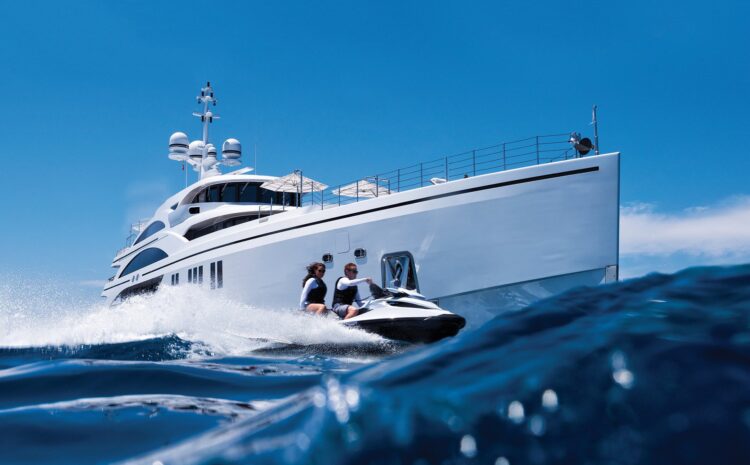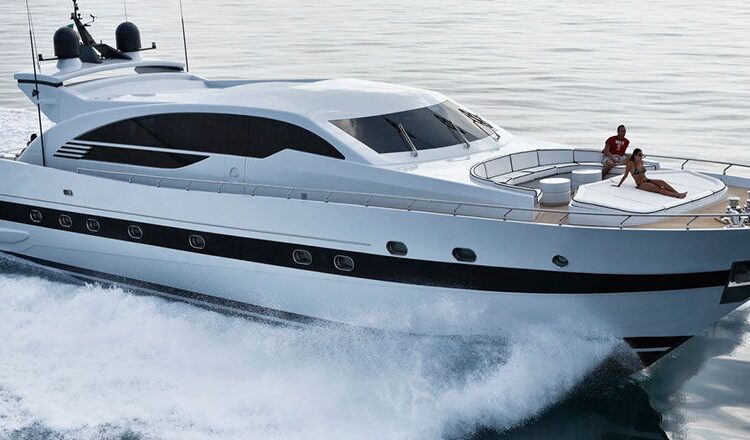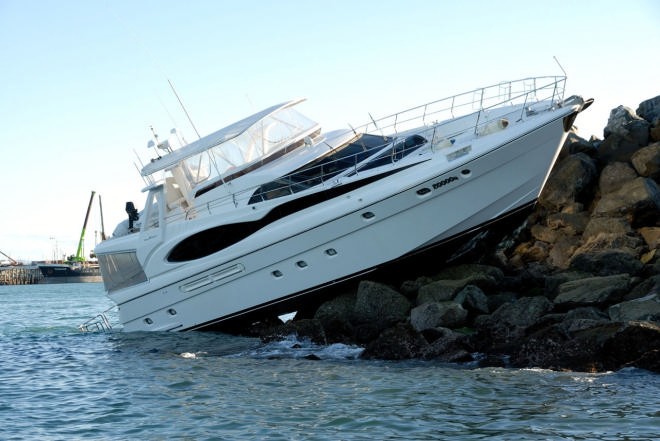
10 Things to Consider When Buying Yacht Insurance
Owning a yacht can be an incredibly rewarding experience. Whether you use it for weekend getaways or extended cruises, your yacht is a significant investment that needs to be protected. That’s why it’s crucial to purchase the right yacht insurance policy. However, with so many policies and providers available, selecting the right one can be overwhelming. Here are ten things to consider when buying yacht insurance.
Founded in 2018, InLuxuss Insurance Group is a brokerage powerhouse that prides itself on an unwavering commitment.
The Value of Your Yacht
One of the most important things to consider when purchasing yacht insurance is the value of your vessel. The value of your yacht will determine the cost of your insurance policy and the level of coverage that you will need. It’s essential to have a realistic valuation of your yacht to ensure that you have adequate coverage in the event of an accident or theft.
The Type of Coverage You Need
When it comes to yacht insurance, there are several types of coverage to choose from, including liability, collision, and comprehensive coverage. Liability coverage is typically required by law and covers damages or injuries that you may cause to other people or property. Collision coverage covers damage to your yacht caused by a collision with another vessel or object. Comprehensive coverage covers damage to your yacht caused by non-collision events, such as theft, fire, or weather-related damage. It’s important to determine the level of coverage you need based on your vessel’s value, intended use, and other factors.
The Deductible
The deductible is the amount that you will have to pay out of pocket before the insurer pays for any damages or losses. It’s important to choose a deductible that you can afford in the event of an accident or loss. A higher deductible may lower your monthly premiums, but it will also mean that you will have to pay more out of pocket if something goes wrong.
The Claim Process
When buying yacht insurance, it’s essential to understand the claim process. Determine how to file a claim, how long the claims process takes, and how the insurer will handle the claim. Look for an insurer with a straightforward and transparent claims process to ensure that you receive prompt and fair compensation in the event of an accident or loss.
The Coverage Limits
Coverage limits are the maximum amount that the insurer will pay for damages or losses. It’s important to choose a policy with adequate coverage limits to ensure that you’re protected in the event of a significant loss. Consider the value of your yacht and any other assets that you want to protect when choosing your policy’s coverage limits.
The Policy's Conditions
Conditions are specific requirements that must be met for coverage to apply. For example, some policies may require that your yacht is stored in a specific location during the offseason, or that you have a specific level of experience as a yacht operator. Be sure to understand all of the policy’s conditions and ensure that you can

Understand the Exclusions and Limitations
When purchasing yacht insurance, it is important to understand the exclusions and limitations of the policy. This means taking a close look at what the policy does not cover and the maximum amounts that will be paid out for certain incidents. It is also important to understand how the policy defines certain events, such as hurricanes or collisions.
When reading through the policy, pay close attention to the exclusions and limitations section. This section will outline what is not covered by the policy. Common exclusions include wear and tear, gradual deterioration, and damage caused by marine life. It is important to understand these exclusions so that you are not caught off guard if you need to file a claim.
In addition to exclusions,
it is important to understand the policy’s limitations. For example, your policy may have a maximum payout for damage caused by a collision. If the damages exceed this limit, you will be responsible for the additional costs.
The Navigation Area
When buying yacht insurance, it’s important to consider the geographic area where you’ll be navigating your vessel. Some policies may limit coverage to certain areas, while others may offer worldwide coverage. If you plan on sailing in international waters or exploring remote areas, you’ll want to make sure your policy provides adequate coverage for these regions. Additionally, if you plan on participating in races or regattas, you’ll want to ensure that your policy covers these activities.

Salvage and Wreck Removal
In the event of an accident or loss, salvaging and removing the wreckage can be costly. Some yacht insurance policies may include coverage for salvage and wreck removal, while others may not. It’s important to consider whether this coverage is included in your policy and if the coverage limits are sufficient to cover the costs of salvage and wreck removal.
Liability Coverage
Liability coverage is another important consideration when buying yacht insurance. Liability coverage can protect you if you are responsible for an accident that causes damage to another vessel or injures someone. It’s important to make sure that your policy includes adequate liability coverage limits to protect you in the event of a lawsuit or claim.
Crew Coverage
If you plan on having a crew on board your yacht, it’s important to consider whether your policy includes coverage for your crew members. Some policies may include coverage for injuries or illnesses that occur while on board, while others may not. Additionally, some policies may require you to provide proof of crew training or certification.
Personal Property Coverage
If you have personal property on board your yacht, such as electronics, appliances, or artwork, it’s important to consider whether your policy includes coverage for these items. Some policies may include personal property coverage, while others may require you to purchase a separate rider for this coverage.
Policy Exclusions
Finally, when buying yacht insurance, it’s important to carefully review the policy exclusions. Policy exclusions are situations or circumstances that are not covered by the policy. It’s important to understand what is and isn’t covered by your policy to avoid any surprises in the event of a claim.




